PostTime:7/31/2019
The Plenary Sessions, which will last for several days, give young people who have scientific ideals the opportunity to listen to top scientists and ignite the passion to explore the unknown.
On the second day, the top scientists who share with the campers their Scientific insights and life experiences include Prof. Zhang Shuguang (USA), member of the Austrian Academy of Sciences; Prof. Guan Yi (China), the director of the State Key Laboratory of Emerging Infectious Diseases at the University of Hong Kong and Prof. Thomas Chang (Canada), the inventor of artificial cells, member of the Canadian Academy of Health Sciences and emeritus professor of McGill University.
Fractals of Nature:Be curious and ask big questions lead to discoveries and new economy
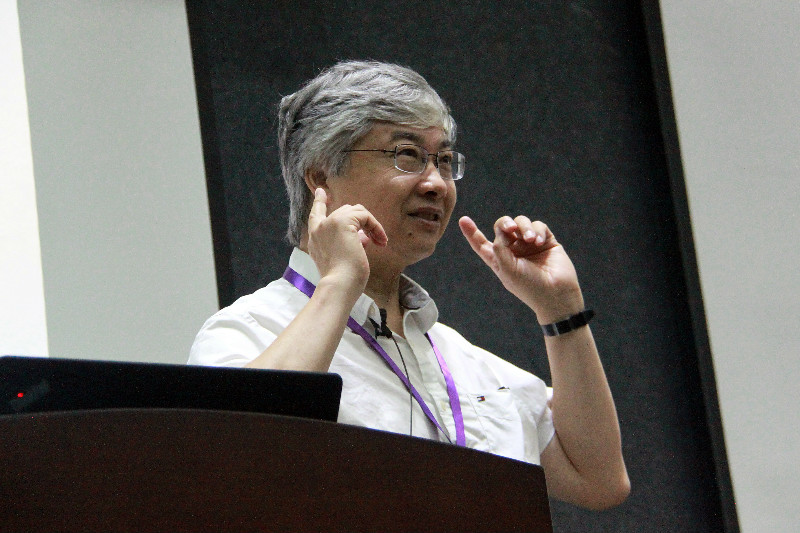
Prof. Zhang Shuguang began his speech with fractal mathematic theory raised by Benoit Mandelbrot, a mathematician. He said that fractal phenomena is everywhere, ranging from a stone to the universe, and even existing in human body, such as our blood circulation system. He gave many examples to prove that fractal patterns have been widely used in many areas and emphasized the importance of curiosity. He said, "You should always ask questions. If you ask big questions, you get big answers."
28 popular science books such as The Water Kingdom, Elegant Solutions were recommanded by Prof. Zhang during the speech. "Keep reading books, especially those about nature. You will learn more from them instead of being a smartphone addict."
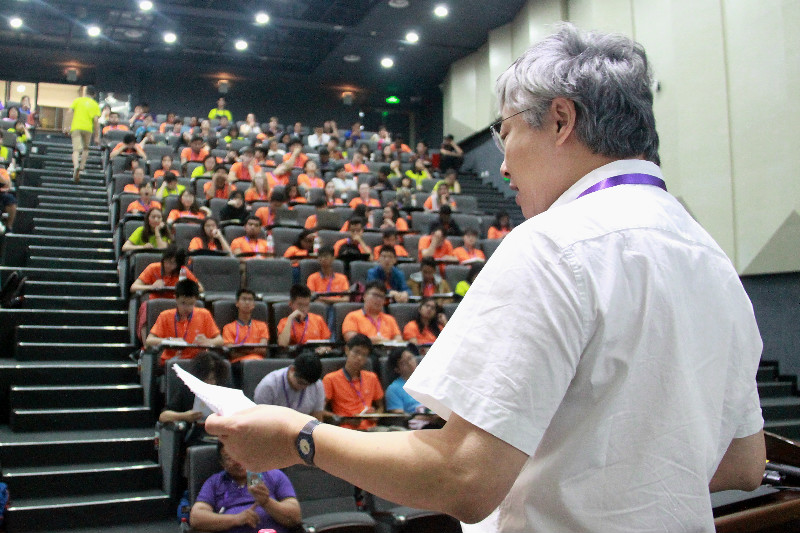
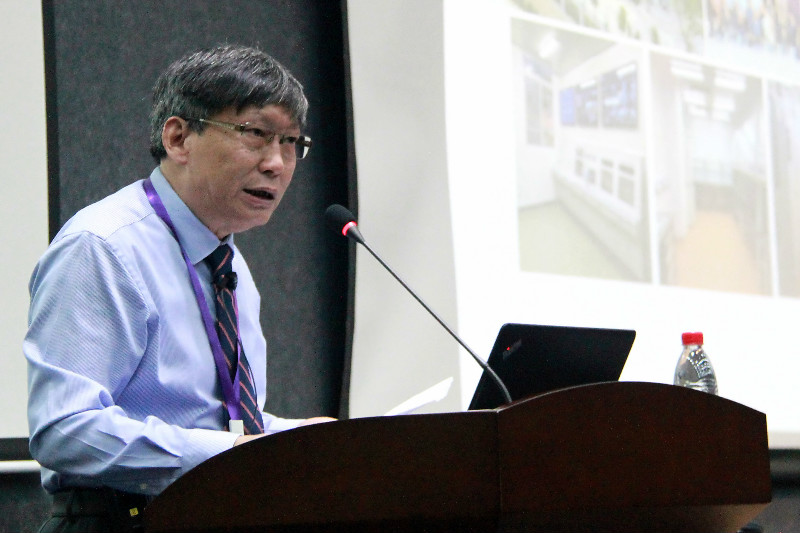
As the director of the State Key Laboratory of Emerging Infectious Diseases and the Center of Influenza Research, Prof. Guan Yi helped the Chinese Government successfully avert the second SARS outbreak in early 2004. He pointed out that although modern science and technology offered us powerful measures to deal with these pathogens, controlling and treating emerging infectious diseases was very difficult. "With the popularity of air travel, viruses spread much more rapidly than before and the time to find solutions is limited." He further shared about solutions to manage the threat of viruses by analyzing the transmission of SARS and MERS.
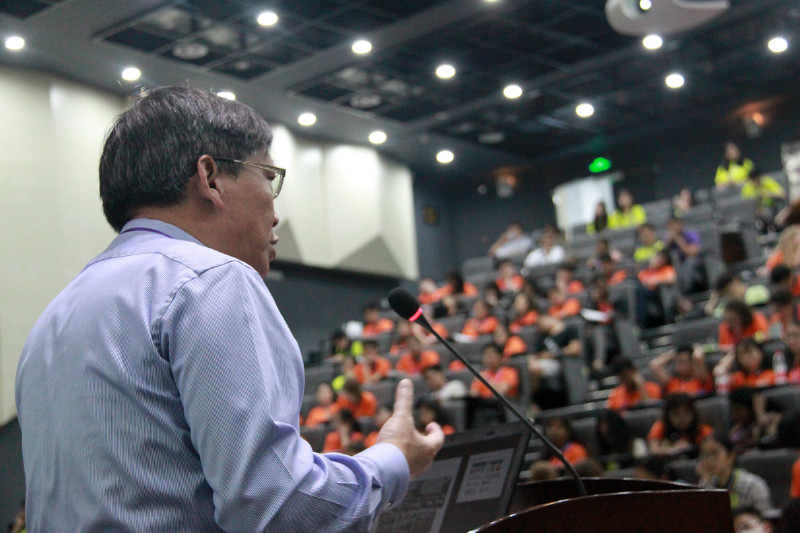
During the Q & A session, students asked whether the viruses can be useful for human. Prof. Guan said that people always hope to exploit viruses. "Our research is just opening the door, and I hope the dream will come true in your generation."
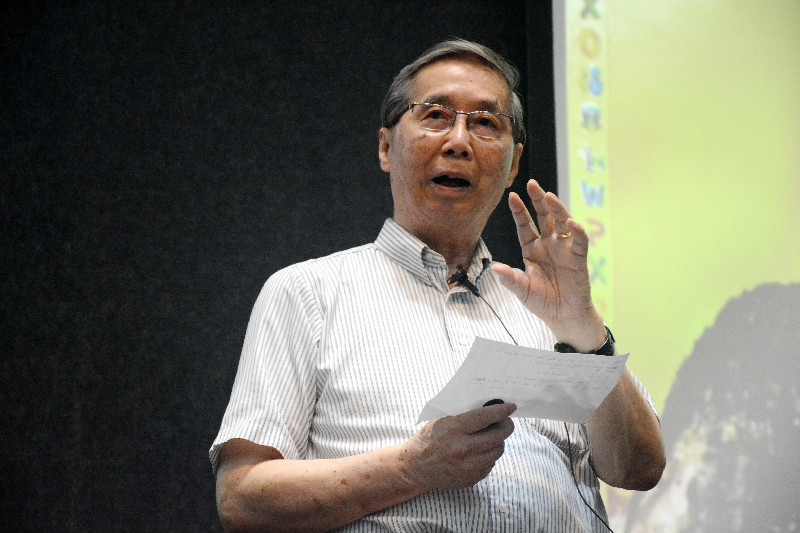
Prof. Thomas Chang started the lecture with his research experience. He generated the idea of artificial cell during his undergraduate study. Even though there were lots of ridicules, he persisted in his research and realized his dream eventually-making the first artificial cell in the world. By breaking "out of the box", he prepares artificial cells with dimensions, contents and membranes when reproducing biological cells.
"Artificial can beapplied to gene therapy, aquatic culture, nanorobotics and other areas," Prof. Chang said, "you should believe in yourself. Never give up. Everything is possible."
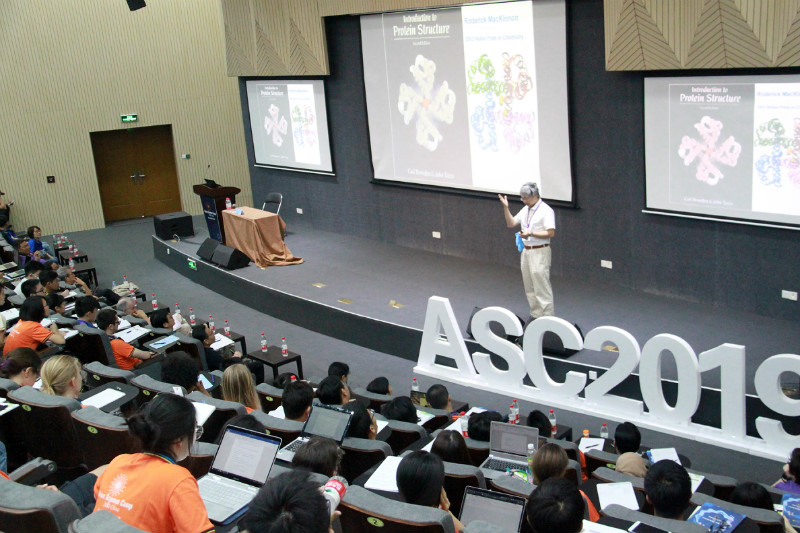
It's amazing. Inever think cells can be manmade. What an interesting lecture! I learnt a lotabout the knowledge of biology.”
-Jemma Henneveld(NewZealand)
I used to be curiousabout the nature when I was a child. Indeed, only with curiosity can you findnew problems. Only when there is a problem can you solve it.
-Hanji (China)
Text by ASC 2019 Media group (Dai Yi, Liu Mingqin)
Photos by ASC 2019 Media group (Zeng Jiayi, Chen Ke)
Text edited by GTIIT News and Public Affairs, ASC 2019 Media group (Chen Yutian)
Photos edited by STU News Center
© GUANGDONG TECHNION-ISRAEL INSTITUTE OF TECHNOLOGY | 粤ICP备17036470号
